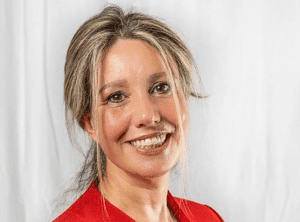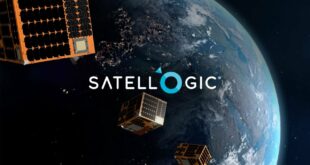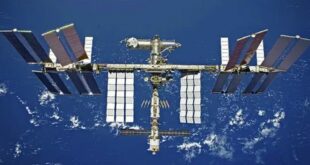
By Carla Sharpe
Space science and space exploration are generally undertaken for the benefit of humanity and thus are normally regarded as a public good provided at a cost to national governments. The space industry, however, although utilising space science and providing for further scientific development, is revenue-driven and provides goods and services to clients, both private and public.
Successful space-related industrial and manufacturing development provides revenue streams and economic expansion. These activities are not limited to but include the design, development, testing, manufacturing and launching of spacecraft. In addition, applications such as those of satellite services are provided to users commercially; this includes a number of private goods.
Other information from space-based activities includes the provision of earth observation or remote sensing data and value added information. Commercially available products and services that generate business derived from space-based assets capable of providing high resolution, day or night, all-weather surveillance worldwide for a variety of purposes. These uses can vary from defense and disaster management to agriculture.
Participation in this arena is very costly, and the barriers to entry can appear to be insurmountable, particularly for developing nations, which leads to somewhat of a paradox for these nations. The need for space services and infrastructure to ensure a nation’s growth, its involvement in the global space industry, and its development of a knowledge economy for economic expansion can come at a large cost, which may detract from the provision of other, more basic necessities to the population.
It is essential to resolve this paradox, to explore and understand the ways in which space-based activities can benefit developing nations and to what extent. The potential benefits can be seen by looking at established national space programme activities. These activities are used to support national and global solutions to current and emerging problems, including food security, resource management, climate change impacts, and disaster mitigation and response.
Further, to support sustainable economic development, space science and technology activities are often implemented as part of a long-term capacity building plan, which needs to be supported with the appropriate policy and legal frameworks, institutional development, community participation and human capital development.
In terms of space activity in Africa, the African Union (AU) has been driving a collaborative effort to enhance African space development. The AU is an intergovernmental organization formed to help nurture security, economic development and economic integration among its member states. It is open to all states in Africa and currently has 54 members. They formulated the vision of the AU: “An integrated, prosperous and peaceful Africa, driven by its own citizens and representing a dynamic force in the global arena.”
In March 2010, the Fourth African Ministerial Conference on Science and Technology (AMCOST IV) recommended setting up a Space Working Group to develop a draft African Union Space Policy and Strategy.
Towards the long term goals of science and technology implementations, including space programmes, preparation phases through the short and medium terms have to be implemented to address specific national challenges to fully derive all the socio economic benefits from these programmes.
In the short term, the primary focus should be on stakeholder development and strategic planning with government, industry and academia towards funding, sustainability and collaboration in an inclusive programme. This drives a coordinated effort which can be summarised as governance implementations including the establishment of the appropriate implementation organisations and oversight bodies, as well as the required policy and legal frameworks.
In the medium term, the primary focus should be to establish, through phased development, the necessary education, skills, resourcing and infrastructure to have the capacity, to not just operate and maintain technology assets, but to do the science, design and manufacture and reap the benefits of the science and technology investments.
The programme pillars that these programmes can be based on towards growth and success in developing nations are:
- Human Capital Development
- Research and Technology infrastructure
- Governance, Funding and Partnership frameworks
Challenges to the implementation of Research and Technology infrastructure in the African context
- Country preparedness
- Inadequate infrastructure
- Misalignment to political commitments and mandates
- Significant resourcing shortfalls
- A wider strategy to incorporate many uncoordinated activities
Strategic interventions such as the following should be designed to address these challenges:
- Implementation of a phased strategy
- A significant effort towards expectation management
- An implementation model that provides for sustainable operations incorporating government, industry and academia towards the development of human capital, skills development, resourcing and funding
- Industry and innovation development programmes
- Coordinated activities according to the specific national strategies there are measurable benefit or progress.
Many successful space programme implementations have happened across Africa and there are inspiring programmes proposed. In exploring these, I believe it is important to look for collaborative opportunities and the development of African value chains to provide for a sustainable continental space based industry and science sector.

Carla Sharpe is passionate about the development of space science and technology in Africa, towards positively impacting the lives of all Africans. She has been with the South African Square Kilometre Array (SKA) project for several years. The SKA is an international effort to build the world’s largest radio telescope, with eventually over a square kilometre of collecting area, and the sheer scale of the SKA represents a huge leap forward in both engineering, technology and research & development. In 2009 Carla founded the Foundation for Space Development and in 2011, Women in Aerospace Africa. Her personal passion project was announced in 2014, Africa2Moon, a low cost solution to performing radio astronomy on the far side of the Moon. It has developed into a beacon project to highlight the potential and ability of developing nations, in particular the African community, and to inspire Africa to “Reach for the Moon” by reaching for the Moon.
Carla will be the guest at this week’s Space Café WebTalk “33 minutes with Carla Sharpe” on Tuesday 14 April 2020. Register here to join us LIVE for this event





